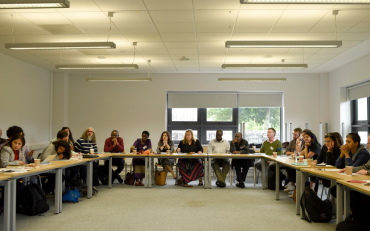Towards CRPD Compliant Mental Health.
Achieving full and effective participation of persons with psycho-social disabilities: Part 1
Summer School, Galway, Ireland
Taking advantage of the presence of many experts at the NUI Galway disability law and policy summer school, IDA, INTAR, World Network of Users and Survivors of Psychiatry and TCI Asia, with the support of Open Society Foundations, the UK Department for International Development and NUI Galway, organised a one-day meeting on Mental Health, Persons with Disabilities and Human Rights. The meeting fostered dialogue between self-advocates, activists, practitioners and academics for the transformation of mental health policies and services from a human rights-based approach toward achieving full and effective participation of persons with psycho-social disabilities.
The meeting started with a key-note address from Catalina Devandas, Special Rapporteur on the Rights of Persons with disabilities, on Human rights and persons with psychosocial disabilities to the NUI Galway summer school. Following this, there was a review of the state of play on global mental health. The session included presentations by Roberto Mezzina, Director of Trieste Mental Health Department, reflecting on the experience of policy reforms in Italy; Julian Eaton CBM Senior Mental Health Advisor, who provided an update about the work of the Global Mental Health as a movement, and Michelle Funk and Natalie Drew from the WHO Mental Health and Substance Abuse Department, presenting the early outcomes of QualityRights initiative.
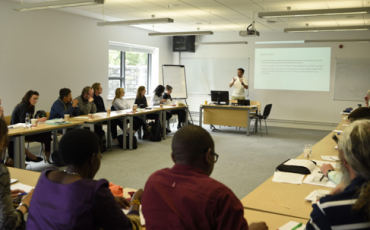
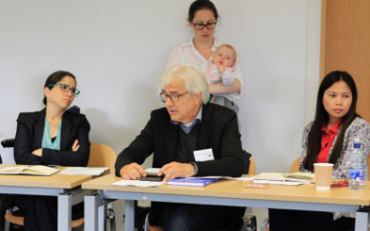
Above left: Alex Cote, IDA Secretariat, facilitating the session.
Above right: Roberto Mezzina, Director of Trieste Mental Health Department, reflecting on the experience of policy reforms in Italy.
Participants reviewed also the synthesis of SWOT analysis that had been sent prior to the meeting. On the one hand, there was a sense that there is a great momentum on mental health, yet national policies and practices are not in line with the CRPD. On the other hand, there is a growing body of practices, studies, evidence, jurisprudence, UN experts reports that support an overall reframing through a CRPD-compliant approach.
In the afternoon, Working groups looked at necessary steps forward to promote CRPD compliant mental health in key areas identified in the multi stakeholders meeting of 29th November 2016 following the INTAR conference.
The working groups went through a few important themes, such as the development of required guidance and technical resource for national stakeholders. They also discussed how to make the evidence that supports non-coercive and inclusive approaches, services and policies more visible in mainstream and leading academic and opinion shaping arena and media.
The conversation also focused on the international framework seeking how to consolidate progress and tackle resistance to CRPD standards´ compliance in human rights treaty bodies, Human Rights Council, and other international mechanisms, as well as the potential use on litigation to do so.
During the feedback of the groups discussion, several very concrete steps that would facilitate access to existing information about relevant practices, evidence, treaty body jurisprudence were agreed. By the end of the meeting, all participants agreed to continue this multi-stakeholders conversation based on the report of the meeting and elaborate further on actions identified, with tentatively another gathering in the second semester 2017.
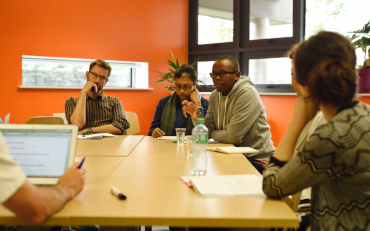
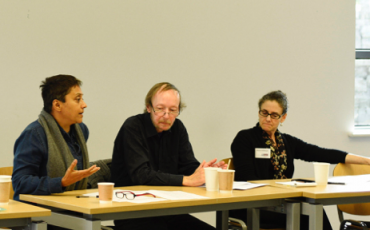
Above left: Working groups looked at necessary steps forward to promote CRPD compliant mental health
Above right: Following the group discussions, a feedback session provided several very concrete steps that would facilitate access to existing information about relevant practices, evidence, treaty body jurisprudence.
